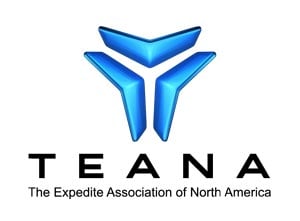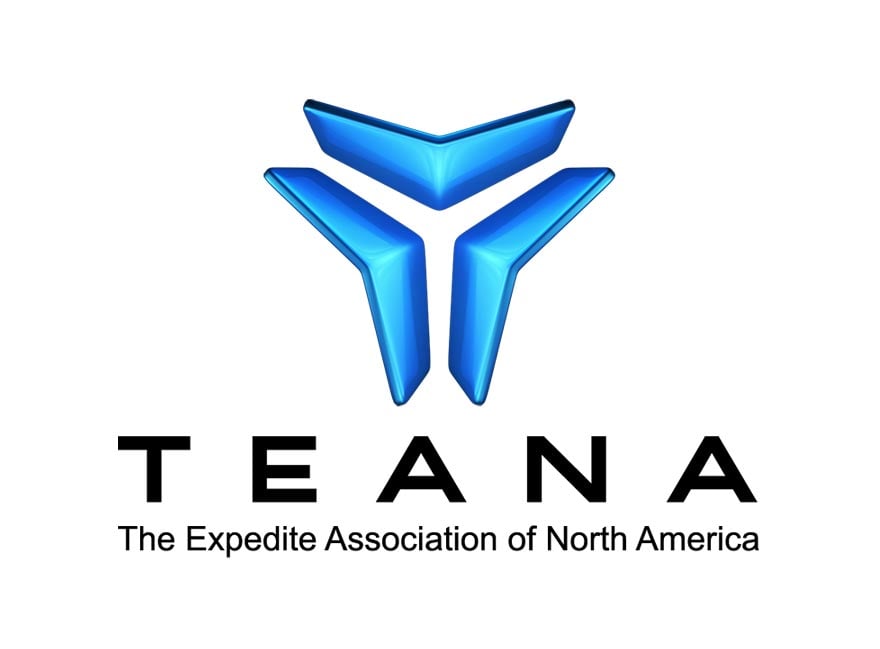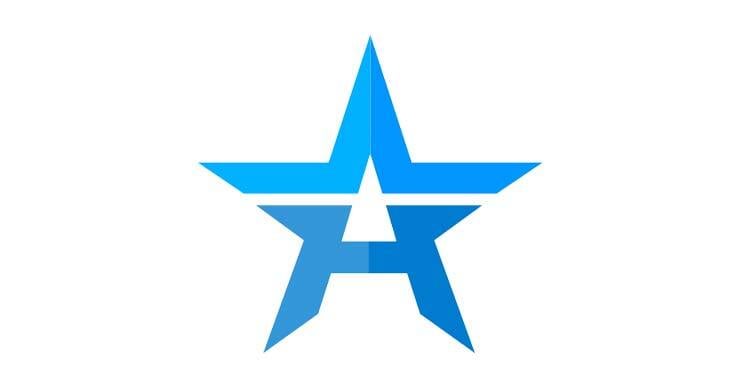December 15, 2021 | BY Hank Seaton
Regulatory and Legislative Update - December 2021
Share this article

Contents
FMCSA has extended its emergency declaration regarding COVID-19 through February 28. For the latest version and other guidance related to COVID-19 is available at www.fmcsa.dot.gov/COVID-19. Note that use of the declaration now requires monthly reporting by carriers.
Legislation
- House passes ocean shipping reform bill
- House passes Build Back Better Act
- House bill would federalize major crash lawsuits, criminalize staging of crashes
- Proposed legislation seeks to relieve supply chain crunch
- Bills would set the stage for a shared chassis pool in Memphis
Regulation and Enforcement
- Vaccination/testing mandate still on hold pending Sixth Circuit review
- AAMVA seeks CDL test exemption for three states
Advocacy and Comment
Legislation
House passes ocean shipping reform bill
The U.S. House of Representatives on December 8 passed by a 364 to 60 vote legislation (H.R. 4996) that would require ocean carriers or marine terminal operators to certify that any detention or demurrage charges comply with federal regulations. The legislation, which is among several measures pending in Congress aimed at addressing issues at ports, also would shift the burden of proof regarding reasonableness from the invoiced party to the ocean carrier or marine terminal operator. Moreover, the bill would also authorize the Federal Maritime Commission to investigate on its own initiative ocean carriers’ business practices and apply enforcement measures as appropriate. For more information, visit https://www.congress.gov/bill/117th-congress/house-bill/4996.
More than a year ago, the American Trucking Associations filed a complaint with FMC alleging that the Ocean Carrier Equipment Management Association and 11 ocean carriers have overcharged motor carriers and their customers for intermodal container chassis at ports and inland terminals throughout the U.S. Adjudication of that complaint is slowly working its way through the FMC process. For the ATA complaint and other documents related to the proceeding, visit at https://www2.fmc.gov/readingroom/proceeding/20-14.
House passes Build Back Better Act
By a highly partisan vote of 220 to 213, the House on November 19 passed legislation (H.R. 5376) – known as the Build Back Better Act – that funds programs in a wide range of areas, including education, labor, childcare, health care, immigration and the environment. The bill, which is a priority of progressive Democrats, had been linked politically with the infrastructure bill until House Democrats decided to move forward with that legislation separately in the wake of unfavorable electoral results in November. (For details of the infrastructure package, see the November 2021 Regulatory Update.) The bill now goes to the Senate where its prospects for passage in its current form are uncertain.
H.R. 5376 does not directly relate to trucking, although provisions promoting electric vehicles might indirectly encourage electric propulsion in heavier vehicles. Although not directly involving trucking, the bill also promotes labor unions. For example, contractors used in installing “green energy” fixtures and systems must pay employees prevailing wage rates as determined by the Labor Department.
House bill would federalize major crash lawsuits, criminalize staging of crashes
Reps. Henry Cuellar (D-Texas) and Garret Graves (R-Louisiana) have introduced a bill (H.R. 6151) that would establish federal court jurisdiction over litigation involving commercial motor vehicles under certain conditions. The bill also would establish criminal penalties for staging collisions with CMVs – a problem that has grown in recent years – and would require disclosure of any party other than the plaintiff or plaintiff’s counsel that has a right to receive payment contingent on a settlement or judgment. Third-party financing of crash litigation recently has raised concern in the trucking industry.
The bill would assign lawsuits involving CMVs operating in interstate commerce to a federal district court in situations where the claim exceeds $5 million and where the plaintiff is a either a citizen of a state that is different from any defendant or a citizen of a foreign country.
Under the proposed legislation, an individual who intentionally causes a collision with a CMV or arranges for another person to do so is subject to a fine, imprisonment for up to 20 years, or both. If such an action results in death or serious bodily injury to another person, the penalty escalates to not less than 20 years in prison as well as a fine.
Proposed legislation seeks to relieve supply chain crunch
Sen. Mike Lee (R-Utah) and Rep. Michelle Fischbach (R-Minnesota) have introduced bills (S. 3252, H.R. 6028) aimed at relieving the port congestion that has contributed to supply chain challenges. The bills would several temporary regulatory waivers and actions to help alleviate some of the stress in freight networks.
Several provisions of the bills are specific to trucking. One would require FMCSA to temporarily waive hours-of-service requirements for truck drivers and motor carriers who are transporting cargo directly to or from a U.S. port. Another would require the agency to temporarily allow 18-year-old drivers to receive a temporary commercial driver’s license for (1) the transportation of cargo to or from a U.S. port or (2) to assume the commercial operations of a truck driver who has been re-routed to a U.S. port.
The bill also would require the Department of Defense (DoD) to take an inventory of intermodal equipment (including truck chassis) and permit trucking companies to use the equipment provided that the use does not affect national security and that trucking companies agree to reimburse DoD for any damage.
Another provision that would affect truck drivers would expedite applications for Transportation Worker Identification Credentials (TWIC) for workers needed to provide direct assistance to a U.S. port. Other provisions would provide flexibility for maritime vessels and designate plots of federal land that could be used to store and transfer empty cargo containers. The DoD could impose a fee for truckers’ use of DoD intermodal equipment, and the funds could be used only for remediation of federal land used for container storage.
For more information, visit https://www.congress.gov/bill/117th-congress/house-bill/6028 and https://www.congress.gov/bill/117th-congress/senate-bill/3252.
Bills would set the stage for a shared chassis pool in Memphis
U.S. lawmakers representing the greater Memphis area have sponsored identical House and Senate bills (H.R. 6081, S. 3268) that would direct the Department of Transportation to issue a request for a private company to develop an operating model for a shared chassis pool at or near the rail ramps in Memphis, Tennessee. The consultant would identify a suitable location or locations and consult with relevant stakeholders. For more https://www.congress.gov/bill/117th-congress/house-bill/6081 and https://www.congress.gov/bill/117th-congress/senate-bill/3268.
Regulation and Enforcement
Vaccination/testing mandate still on hold pending Sixth Circuit review
The Occupational Health and Safety Administration’s emergency temporary standard (ETS) that would require most employers with 100 or more employees to ensure that their employees are either vaccinated against the coronavirus (COVID) or undergo weekly testing remains on hold after the U.S. Court of Appeals for the Fifth Circuit imposed a stay on November 12. Multiple lawsuits were filed in multiple circuits, but the U.S. Court of Appeals for the Sixth Circuit has now been assigned jurisdiction.
In the interim, OSHA has extended the comment period on the ETS and on whether it should be adopted as a permanent standard. Comments are due January 19. For more information, visit https://www.regulations.gov/document/OSHA-2021-0007-0900.
AAMVA seeks CDL test exemption for three states
FMCSA is requesting comments by January 10 regarding a multi-year exemption requested by the American Association of Motor Vehicle Administrators (AAMVA) that would allow the state driver licensing agencies (SDLAs) in Maryland, New Hampshire, and Virginia to continue using revised commercial driver’s license (CDL) pre-trip vehicle inspection and revised control skills test procedures. The three states are currently conducting field tests of revised procedures as part of a pilot program under an FMCSA waiver. AAMVA states that the requested exemption would allow states to continue operating under the pilot model without the burden of reverting to the older CDL test model. For the Federal Register notice, visit https://www.federalregister.gov/d/2021-26641.
Advocacy and Comment
This month’s update is heavy on pending legislation. Supply chain disruptions, intermodal bottlenecks, and shortages highlight our dependence on overseas production and the importation of cheap goods. Our attenuated foreign supply chain, our trade imbalance and the “build back better” initiative all create a toxic stew for predicting 2022 inflation and increased labor costs.
Further distribution changes are foreseeable as inventories and production sourcing are redomesticated. Jobs, warehousing, technology, trade, and energy policy are all wildcard issues. With shifting transportation demands, increasing transportation costs and driver retention issues involved, next year may be “the best of times, the worst of times” and the times that try men’s souls.
Our Process lorem ipsum dolor sit amet, consectetur adipiscing elit. Nunc vulputate libero et velit interdum, ac aliquet odio mattis.
Value prop lorem ipsum
Ut posuere hendrerit nisl metus neque. Facilisis quis adipiscing a molestie. Tempor turpis tincidunt nulla diam in. Nec etiam ut neque placerat mauris nulla. Semper hendrerit at urna orci in faucibus sit lacus. Tincidunt fermentum consequat.
SEE OTHER CITIES WE SERVICE IN THIS STATE
Value prop lorem ipsum
Ut posuere hendrerit nisl metus neque. Facilisis quis adipiscing a molestie. Tempor turpis tincidunt nulla diam in. Nec etiam ut neque placerat mauris nulla. Semper hendrerit at urna orci in faucibus sit lacus. Tincidunt fermentum consequat.
SEE OTHER CITIES WE SERVICE IN THIS STATE
Related Blog Posts

Regulatory and Legislative Update - April 2022
Contents FMCSA has extended its emergency declaration regarding COVID-19 through May 31, 2022. For the latest version and other guidance related to COVID-19 is available at www.fmcsa.dot.gov/COVID-19. Note that use of the declaration now requires monthly reporting by carriers. Regulation and Enforcement Biden administration suffers setbacks on independent contractor policies FMCSA seeks applications for task force on lease agreements Hutcheson...

Regulatory and Legislative Update - August 2022
Contents FMCSA has extended its emergency declaration regarding COVID-19 through August 31, 2022. For the latest version and other guidance related to COVID-19 is available at www.fmcsa.dot.gov/COVID-19. Note that use of the declaration now requires monthly reporting by carriers. Courts Appeals court upholds the latest changes to HOS rules Appeals court overturns ruling for Schneider in classification case Regulation and Enforcement Registration...

Regulatory and Legislative Update - March 2021
Contents FMCSA has extended its emergency declaration regarding COVID-19 through May 31. For the latest version and other guidance related to COVID-19 is available at www.fmcsa.dot.gov/COVID-19. Regulation and Enforcement DOL postpones effective date on independent contractor rule DOL withdraws opinions sleeper berth pay, independent contractor status SBA takes steps to improve PPP access for very small businesses FMCSA postpones effective date...

Regulatory and Legislative Update - August 2023
Contents Regulation and Enforcement FMCSA to revisit state regulation of drivers’ rest breaks Three devices removed from list of registered ELDs FMCSA updates technical guidance on ELDs Brian Stansbury appointed FMCSA’s chief counsel FMCSA rejects driver’s requested exemption from multiple HOS requirements Legislation Senate DOT funding bill would block younger driver program mandates Senate bill would establish a carrier selection standard...

Regulatory and Legislative Update - April 2021
Contents FMCSA has extended its emergency declaration regarding COVID-19 through May 31. For the latest version and other guidance related to COVID-19 is available at www.fmcsa.dot.gov/COVID-19. Regulation and Enforcement DOL proposes to withdraw rule on worker classification DOT rescinds Trump administration’s changes on rulemakings, guidance CVSA to hold enforcement events in May and July Bus operator seeks exemption from full clearinghouse...

Regulatory and Legislative Update - March 2022
Contents FMCSA has extended its emergency declaration regarding COVID-19 through February 28. For the latest version and other guidance related to COVID-19 is available at www.fmcsa.dot.gov/COVID-19. Note that use of the declaration now requires monthly reporting by carriers. Regulation and Enforcement FMCSA removes x-ray exam from definition of ‘medical treatment’ FMCSA drops mandate that drivers disclose traffic violations to employers FMCSA...

Regulatory and Legislative Update - November 2021
Contents FMCSA has extended its emergency declaration regarding COVID-19 through November 30. For the latest version and other guidance related to COVID-19 is available at www.fmcsa.dot.gov/COVID-19. Note that use of the declaration now requires monthly reporting by carriers. Legislation Senate version of infrastructure bill becomes law Senate bill would revise hours-of-service rules, lower CDL age to 18 House bill would pay carriers to assist...

Regulatory and Legislative Update - June 2023
Contents Regulation and Enforcement Labor Department nominee concedes federal ABC test is up to Congress Volpe Center supporting FMCSA in test of wireless inspections CVSA announces Operation Safe Driver Week for July 9-15 Women of Trucking Advisory Board to meet June 29 FMCSA launches anti-human trafficking campaign Brenna Marron to head FMCSA’s government affairs office Legislation House T&I Committee approves package of bills related to...

Regulatory and Legislative Update - February 2022
Contents FMCSA has extended its emergency declaration regarding COVID-19 through February 28. For the latest version and other guidance related to COVID-19 is available at www.fmcsa.dot.gov/COVID-19. Note that use of the declaration now requires monthly reporting by carriers. Regulation and Enforcement Safety fitness procedures apparently are next on FMCSA’s regulatory agenda FMCSA adopts new vision standards for commercial drivers FMCSA...

Regulatory and Legislative Update - February 2025
Contents Regulation and Enforcement FMCSA reopens comment period on broker transparency Truck Leasing Task Force issues final report opposing lease-purchase programs DOT appoints several FMCSA officials FMCSA withdraws several pending rulemaking following regulatory freeze Nomination hearing for Trump’s DOL pick slated for February 19 Trump orders 10-for-1 deregulation initiative EPA refers Biden administration’s CARB waivers to Congress...

Regulatory and Legislative Update - January 2025
Contents Regulation and Enforcement FMCSA expands crash preventability review criteria FMCSA to highlight upcoming SMS changes in January 16 webinar Compliance date pushed back for certain provisions of broker/forwarder rule Trump labor pick, port dispute stance raise questions about labor policy FMCSA proposes to waive hazmat endorsements for certain limited operations Company denied exemption for limited interstate driving by younger drivers...

Regulatory and Legislative Update - October 2021
Contents Regulation and Enforcement DOT seeks input on ‘supply chain resilience’ in freight and logistics FMCSA rule to link clearinghouse data to CDL Reporting requirement for FMCSA COVID declaration kicked in October 1 FMCSA renews steel company’s exemptions from HOS and securement rules Oak Harbor Freight Lines seeks exemption on driver training instructors Keep Truckin seeks windshield exemption Legislation Infrastructure bill remains in...
WHAT IS HOT SHOT TRUCKING? AKA HOTSHOT TRUCKING
Modern business is all about strict timelines. Whether your field is manufacturing, extraction, retail, or research and development, your operations are bound to rely on activities that operate in tandem. The most minor of supply shortages can throw these activities off, potentially costing you thousands of dollars just for a few hours' delay. Success thus hinges on your ability to right the ship as quickly as possible after a supply shortage arises.
Industries We Serve
Modern day hot shot trucking provides the speed and exclusivity you need to meet the most demanding and time-sensitive shipping requirements. We use every resource, avenue, and channel available to ship your freight by ground or air. Designed specifically to address supply and distribution problems that arise without warning, hotshot trucking tactics involve coordinating a network of carriers in a variety of locations. By calling on the vehicles closest to your supply or distribution points, hotshot brokers can fill any sudden gaps in your supply network almost as soon as they happen. This minimizes the disruption to your business and allows you to quickly return to ordinary operations, weathering the storm without skipping a beat.
Automotive
The automotive supply chain already has significant challenges. Don’t let malfunctioning equipment stop the production line. Step on the gas with HotShotTrucking.com’s suite of services that will get you back in the fast lane. With HotShotTrucking.com, companies are devising shipping strategies to swiftly deliver critical parts and equipment — whether it's ground expedite service with sprinter vans, box trucks and 53-foot tractor trailers or air freight and air cargo.
Aviation & Aerospace
Every moment a commercial airliner sits on the ground, it costs an airline money. Expedited freight services by HotShotTrucking.com can get you back in the air with prompt delivery of parts and equipment throughout North America. We are equipped with the expertise to navigate the complexities of shipping jet engines and other types of loads, and our network of hot shot drivers has extensive experience transporting aviation assets.
Construction
One shipping delay can snowball and cause delays throughout your entire project. You need an experienced 3PL provider who understands the construction industry and has the logistical reach to deliver your freight on time, anywhere. That 3PL partner is HotShotTrucking.com. Whether in the air or on the ground via truck and trailer, we can connect companies to expedited freight services for the prompt delivery of parts and equipment throughout North America.
Mining & Metals
From cranes to chemicals to excavators to conveyor belts, HotShotTrucking.com has the experience and industry know-how required for shipping sensitive, oversized, and hazardous equipment. Third-party hot shot trucking and logistics providers such as HotShotTrucking.com specialize in devising and implementing innovative shipping solutions, ensuring mines can swiftly return to operation. We’ll pick up your shipment, deliver it to the airport and receive it at the other end – providing hand-carried service as necessary or required.
Manufacturing
Every moment a manufacturing facility or factory sits idle costs a company money because of the high costs involved. With many manufacturers building to only just-in-time production rates, any disruption threatens parts and vehicle inventories. This is where the speed and expertise of freight services from HotShotTrucking.com can make a difference throughout the entire manufacturing supply chain. We do all the logistical legwork to find the optimal solution for your job, whether it's an exclusive air charter or expedited ground shipping.
Telecommunications
From servers to cell towers, information, voice, and data must flow to keep businesses, production, and the public online and connected. When equipment goes dark, depend on HotShotTrucking.com to get your systems flashing green again. This is where the speed and experience of trucking and freight services from HotShotTrucking.com can help. Our hot shot truck network excels at the prompt delivery of parts and equipment throughout North America.
Oil & Gas
The oil and gas industry faces challenging conditions in offshore and onshore oil rigs, often in remote locations with limited infrastructure. Don’t let oil pumps or pipelines sit idle waiting for equipment. By having the right plans, parts, people, and logistics partner like HotShotTrucking.com, you can effectively mitigate plant or pump downtime, unscheduled disruptions, and equipment failures.
Cost of Urgent Shipping
Which of our specialized shipping services best fits your needs?
Blog and Resource Center
How AirFreight.com Solved a PGA Tour Shipping Emergency
Learn how AirFreight.com located a lost shipment and helped save the PGA Golf Tour.
How AirFreight.com Saved The Farm By Solving A Major Shipping Delay
Learn how we saved a Montana-based artisanal farm thousands of dollars by expediting a shipment of perishable goods.
Expedited Shipping Vendor Comparison
We’ve done the research for you. This vendor comparison sheet breaks down how AirFreight.com stacks up against the competition.

talk to an expeditor now
Get a Quote in Minutes for Your Time-Critical Freight Needs
GET A QUOTE
